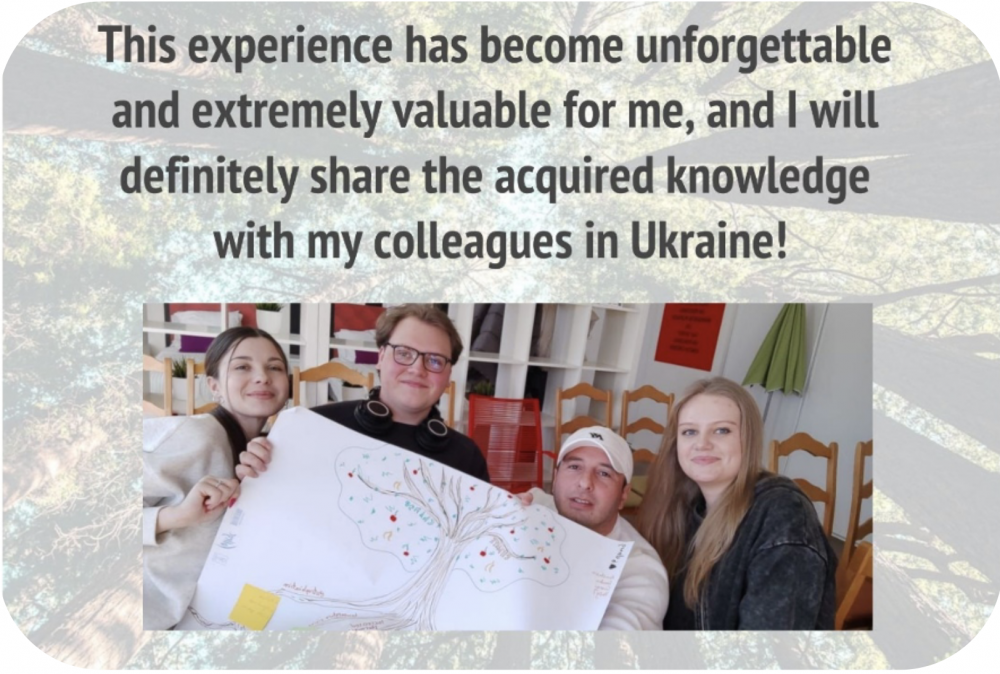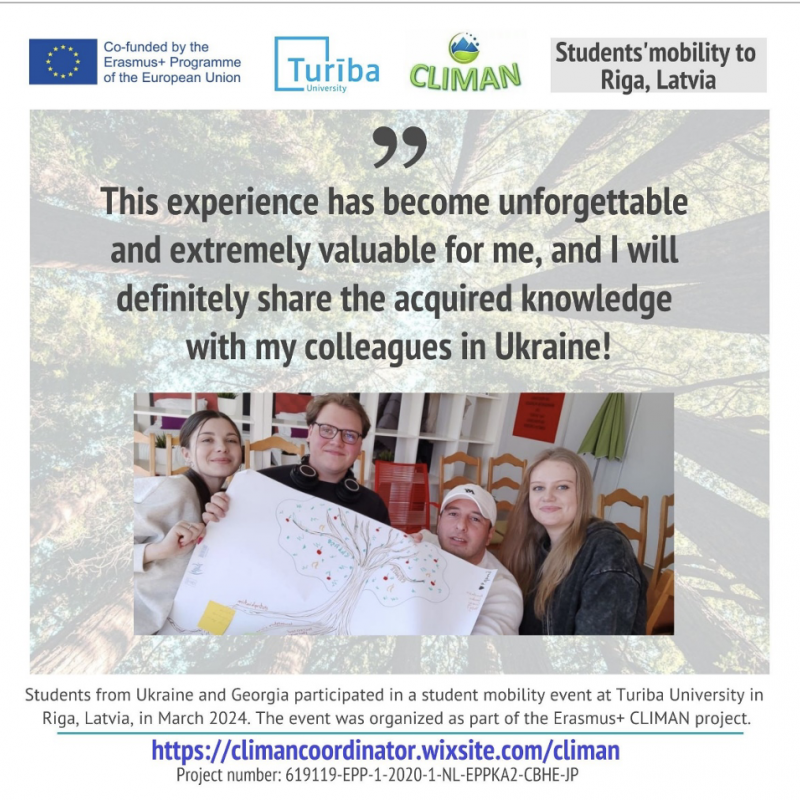NEWS
The fight against climate change not just “on paper”

Collaboration projects are a great opportunity for universities and other organizations to develop new educational materials and tools, improve their curricula, and enhance the ways we teach our students. But most importantly, these projects provide opportunities to address pressing issues, seek solutions to various problems, and develop those areas we are truly passionate about.
Sometimes, projects implemented by universities might seem complex and hard to understand; one might think this about the ERASMUS+ collaboration project titled “Synergy of educational, scientific, management and industrial components for climate management and climate change prevention”. However, the idea behind this project is very simple – to help students in Ukraine and Georgia learn how to mitigate climate change and understand what sustainability is. As part of this project, 13 universities from Germany, Latvia, Lithuania, Italy, Georgia, and Ukraine collaborated to create a modern curriculum on climate change mitigation and to help implement it in various universities in Ukraine and Georgia.
While the fight against climate change is not new in European countries, and almost every student in various study programs learns about climate change and sustainability, this topic is not yet included in every curriculum in the project's partner countries – Georgia and Ukraine. Therefore, universities from Latvia, Germany, Lithuania, and Italy shared their experience and supported Ukrainian and Georgian universities in developing climate change mitigation modules and integrating them into their curricula.
Within the project framework, new courses on climate change mitigation and sustainability were developed, and existing study programs were improved. For example, the program “Strategic Climate Management” was created, and existing programs were enhanced by including climate change mitigation topics in courses such as “Environmental Safety in Agriculture,” “Energy Resources,” “Climate Management,” “Climate-Friendly Entrepreneurship,” “Sustainable Marketing,” and many others.
The new programs and courses were implemented in six universities in Georgia and Ukraine: KROK University (Ukraine), Kharkiv National Automobile and Infrastructure University (Ukraine), Lviv Polytechnic National University (Ukraine), Akaki Tsereteli State University in Kutaisi (Georgia), Batumi Shota Rustaveli State University (Georgia), and West Ukrainian National University (Ukraine).
The universities also established climate management centers. In these centers, university lecturers organized various trainings, local initiatives, clean-up events, discussion evenings, and similar activities. The project was carried out despite the challenging situation in Ukraine, where active war is ongoing.
As one of the project partners, Turiba University also contributed to the project’s implementation. Our lecturers supported colleagues from Ukraine and Georgia in developing new study programs and modules and organized trainings in Latvia for both students and lecturers.
Starting from March 4, 2024, Turiba University welcomed 21 students from universities in Georgia and Ukraine for two weeks to learn about sustainability, especially sustainable entrepreneurship. During the study mobility, students participated in lectures, practical classes, and educational visits. The students represented various fields – from ecology studies to pedagogy and engineering sciences. However, regardless of the field, the topic of sustainability is now the cornerstone of any study program. Turiba University, focusing on business education, provided students with insights into developing and establishing sustainable businesses.
After these two weeks of training, students highly appreciated their time at Turiba. Many students were determined to take their newly acquired knowledge back to their “home universities” and actively share it with their peers and lecturers.
We, the Turiba team, were particularly inspired by the Ukrainian students. Despite the ongoing war in their country, they were eager to learn and acquire new knowledge to use in their homeland and build its future on sustainable foundations.
Some students who visited Latvia are already actively working in the Climate Change Mitigation Centers established at their universities as part of this project. They shared their experiences and achievements in the field of climate change mitigation. Together with their lecturers, students regularly organize various educational lectures and events, clean-up campaigns, and other environmental protection activities. These students inspire us all, demonstrating that anyone can care for their environment and live sustainably, even in very challenging conditions. This shows that sustainability for these young people is not just “on paper” but is their conviction and way of life!
Learn more about the project here.
The project is co-funded by the European Union ERASMUS+ programme. Project number: 619119-EPP-1-2020-1-NL-EPPKA2-CBHE-JP

